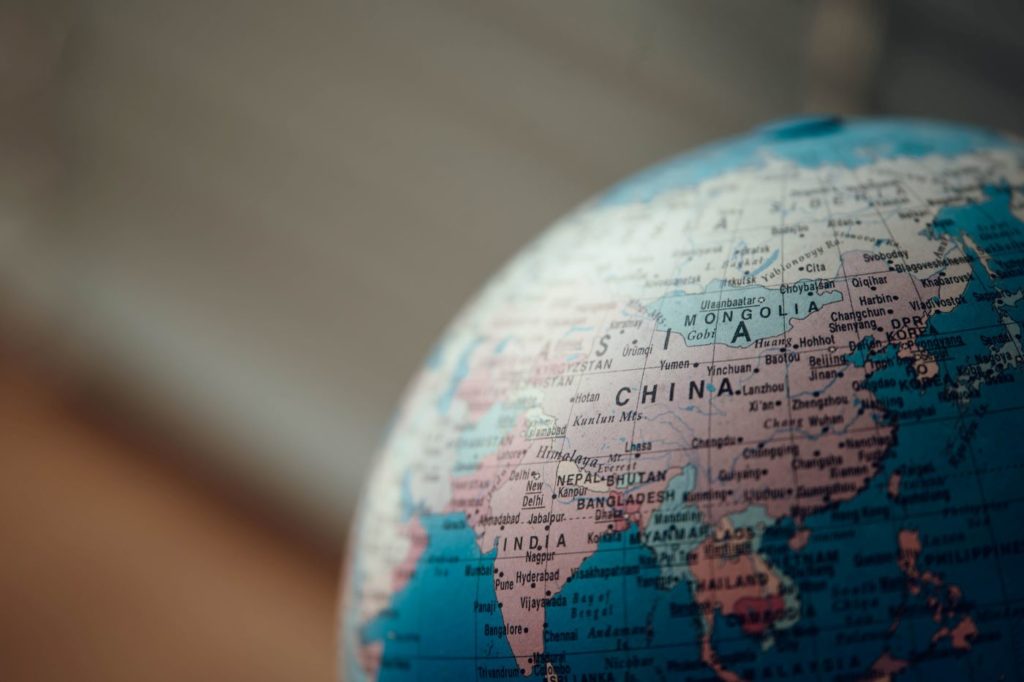The civil unrest that has erupted in Hong Kong demonstrates that Hong Kong’s citizens understand both the Chinese ruling elite and their governing jurisprudential principles better than we do. “Many protesters say they’re willing to fight to the end.” That most striking line, which jumps out of a recent Wall Street Journal report, reveals a mental and moral clarity that American discourse about China has not yet achieved.
Affluence and the distractions of technological advancement have enfeebled the spirit of liberty and lawfulness in Britain’s former colony on the North American continent. But the love of liberty and the rule of law seems to be quite alive in Britain’s former colony in the East, despite its prosperity.
The willingness of protestors in Hong Kong to die for their cause might seem almost unintelligible to many Americans today. But they are fighting to ensure that the ruling Communist Party will honor its treaty obligations to preserve Hong Kong’s liberties. They understand that the problem of China is a problem of tyranny: the ruling Communist Party views itself as above the law.
By comparison, the Trump administration is largely treating the problem of China as an economic problem, rather than as a threat to civil liberties and human rights. The ruling Communist Party’s offenses against Christians, Uighur Muslims, and other minority religious groups, and its threats against Hong Kong, have not gone unnoticed. But the administration seems to be willing to fight China over monetary and economic policy, not organ harvesting and indoctrination camps.
Start your day with Public Discourse
Sign up and get our daily essays sent straight to your inbox.This might be partly a matter of perception. Media elites have little motivation to report the administration’s criticisms of China’s human rights record. Secretary of State Pompeo has been particularly bold and candid in his assessment of the Chinese government’s religious persecution, calling it the “stain of the century.” However, the administration places economic and human rights issues in different silos, and the economic issues seem to be the priority.
A comprehensive strategy for effective solutions to the problem of China would proceed from the recognition that the Chinese government is lawless. This recognition would strengthen the economic case against China and connect it to other concerns. China’s economic cheating, military brinksmanship, and human rights abuses are not three separate problems. They are three facets of the same problem. To understand the Chinese government as lawless is to understand the common core of China’s human-rights abuses (especially religious persecution), espionage adventures (especially cyber theft), and economic cheating (especially its theft of intellectual property). China flouts the rule of law, not occasionally, or incidentally, but characteristically, because the government understands itself to be the source of law and to be unconstrained by it.
The Chinese ruling party’s lawlessness is not for a lack of posited laws. Law does not come only from governments. Contra positivists and legal pragmatists, to adhere to one’s own regulations and to obtain the sanction of courts of last resort does not make a nation’s actions lawful. All of the specifications of practical reason that people make in the exercise of their liberty are part of the law.
In a sense, American founding principles provide the solution to the problem of China. Our nation is founded on the idea that legislation and judgments are species of a broader category of laws that can and should be understood as law, and that governments are instituted to secure those pre-positive laws—rights and correlative duties that we already have by nature, and that we can apprehend by reason and historical understanding.
Law is more than statutes and judicial rulings, because law is made by human beings as they give specific form to universal principles of reason. Contracts and property conveyances are law. Because people have obligations to keep their promises on which others rely, and because they have duties not to harm others intentionally and not to take others’ things, private law is real law. Ancient customs are also laws. People promulgate customary law by their actions as they solve practical problems that recur frequently in human history.
For the same reason, the law that governs nations is real law. Much of it is voluntary, specified in treaties. But much of it is what jurists have called the necessary or natural law of nations. It could not be otherwise consistent with reason. That some resources are inherently common to all people, such as the oceans and navigable seas, is part of the universal law of civilized people by ancient custom and by necessity. Moreover, the law governing nations includes determinations of natural law. Fundamental, fully-specified universal duties not to commit intrinsic wrongs are also part of the law of nations. This was the implicit predicate for Allied war crimes tribunals in Germany and Japan after World War II.
That analogy becomes more apt as the Chinese government moves closer to its aspiration of totalitarian control. The war-crimes tribunals designed by Benjamin Kaplan, Robert Jackson, and other great American jurists appealed to a common understanding. Like the Founders, they submitted the facts to a candid world; they took the law as given.
That law has a distinguished place in our jurisprudence. It is known as the ius gentium, or the law of civilized peoples. The ius gentium is not a set of abstract principles, but real law. Whereas natural law and natural rights tell us in general terms what is good and right to do, the customary law of nations provides specific direction for action. It consists of maxims and even rules that reflect centuries of accumulated practical wisdom and the best judgments of the most learned jurists. For example, it is legally (not just morally) wrong for China to assert exclusive dominion over the South China Sea because the ius gentium marks off the seas as inherently common resources which people must be free to use for their survival and liberty of movement.
The ius gentium transcends national boundaries and confounds tyrants. China is violating it on numerous counts. Once one has clearly in mind that state actions can be unlawful even when authorized by the state and its positive laws, one can see clearly that the conduct of China’s government in many domains is not only undesirable but also unlawful.
Consider Chinese cyber warfare. It is not a radically new thing, but simple piracy. Cyber pirates act like sea-going pirates. They violate rights that nearly every nation declares in their laws in places where no one nation has obvious jurisdiction or responsibility. They attack carriers who possess private information on behalf of third parties, like sea-going pirates who attack ships carrying other peoples’ personal property.
Because we can understand China’s piracy in the realm of information using the same legal categories that we apply to piracy on the seas, we can identify the relevant actors by their analogous roles in our international precedents. The hackers are pirates. The custodians of the information are bailees, who have rights of exclusive possession and remedies for infringement, though they also owe duties to the originators of the information. The originators of the information, to the extent that they have not published it, enjoy property rights to keep their information exclusive and private.
This understanding could open up a well-defined set of jurisprudential principles and precedents for counteracting Chinese aggression in the virtual world. For example, cyber-law expert Thomas Folsom proposes that we should bring back the letter of marque and reprisal, a device employed in the eighteenth and nineteenth centuries to authorize and motivate private, armed ships to capture pirates on the seas. The U.S. Constitution expressly confers the power on Congress. Anti-pirate hackers might put the pirates on the defensive.
Nor is there anything new about Chinese aggression in the material world. China’s assertion of exclusive rights over the Taiwan Strait is nothing less than a threat to commit international trespass. By ancient, international customary law, straits such as the Taiwan Strait, which communicate between two seas, are open to passage by all. They are, in other words, the property of all who navigate on water. To interfere with another’s exercise of his lawful occupancy is contrary to the universal law of natural reason. Just as a landowner trespasses if he prevents someone from exercising a lawful easement over his land, China is infringing property rights to the extent that it interferes with navigation in the Taiwan Strait.
China’s most egregious economic adventures are also violations of basic law. Chinese companies that are probably controlled by the Communist Party steal trade secrets worth billions of dollars, which can be used to control international communications and Internet connectivity for years to come. By one estimate, twenty percent of American companies have suffered intellectual property theft by hands in China. Intellectual property is property. Developed nations and nations that want to develop economically recognize the importance of protecting the fundamental rights of innovators. China’s seizure of intellectual property should be understood as trespass and theft. The Chinese government takes what by right belongs to others, without whose creative and risk-laden labors the innovations and technologies that make economic growth possible would not exist.
Unfortunately, the Trump administration seems not always to understand these fundamental legal concepts. That is not surprising, for the administration’s lawyers were educated in American law schools. Most of them have been taught to understand law as exclusively positive—either rules promulgated in statutes and regulations, or judgments rendered by courts and other tribunals.
We need a more comprehensive understanding of law to meet contemporary challenges. The recent formation of a commission within the State Department to study unalienable rights is a good start. But a correct understanding of human rights is one aspect of a correct understanding of what rights are, what law is, and where rights and law come from.
Of course, to observe the Chinese government’s lawlessness with integrity, we must turn the light of the ius gentium on ourselves, which could be uncomfortable. We might discover that our own government has not always acted rightly on the international stage. But it would be a benefit, not a cost, of a comprehensive policy concerning China. This would be an occasion to repent and to reaffirm our own jurisprudential principles.
The Chinese government is tyrannical. Tyranny is nothing new, nor is the law by which tyranny is assessed. The technologies and some of the methods are innovative; the legal wrongs are not. We can restore and adapt the intellectual resources that we need to solve the problem of China; but first we must understand the problem as one that goes down to the deeper laws beneath positive laws.













